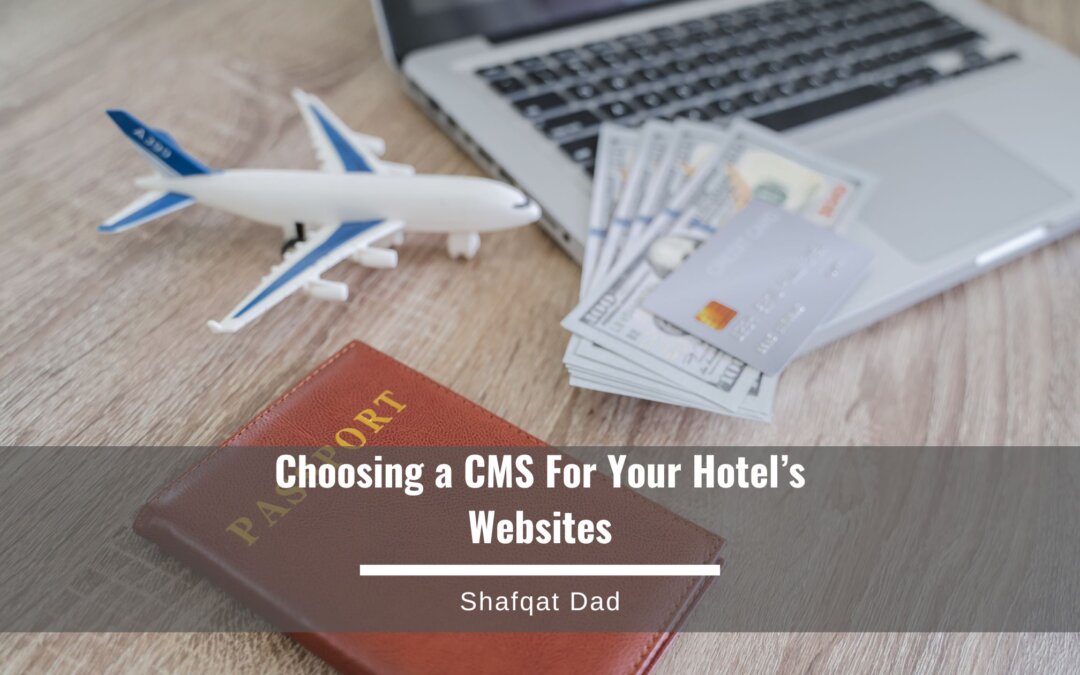Selecting the right Content Management System (CMS) is crucial for hotels looking to create and maintain an effective and engaging online presence. A CMS simplifies website management, allowing hotels to update content, manage bookings, and enhance the guest experience seamlessly. Here are some key factors to consider when choosing a CMS for your hotel’s website.
Ease of Use
An intuitive and user-friendly interface is essential for hotel staff to efficiently manage website content without requiring extensive technical knowledge. Choose a CMS that offers a WYSIWYG (What You See Is What You Get) editor, drag-and-drop functionality, and customizable templates. This allows hotel staff to update content, upload images, and easily create new pages, saving time and minimizing the need for external assistance.
Mobile Responsiveness
With an increasing number of guests accessing hotel websites on mobile devices, choosing a CMS that prioritizes mobile responsiveness is essential. Ensure the CMS offers responsive templates and design options that adjust automatically to different screen sizes and devices. Mobile-friendly websites provide a better user experience for guests and improve search engine rankings and overall site performance.
Integration Capabilities
Select a CMS that seamlessly integrates with third-party software and platforms commonly used in the hospitality industry, such as booking engines, property management systems (PMS), and customer relationship management (CRM) software. Integration capabilities allow for real-time data synchronization, such as room availability and guest bookings, across multiple systems, ensuring accuracy and efficiency in managing reservations and guest interactions.
SEO Features
Optimizing website content for search engines is essential for driving organic traffic and increasing visibility in search engine results. Look for a CMS that offers robust SEO features, such as customizable meta tags, XML sitemap generation, and SEO-friendly URLs. Additionally, choose a CMS that provides built-in analytics and reporting tools to track website performance, monitor keyword rankings, and identify opportunities for optimization.
Security Measures
Security is paramount when managing sensitive guest information and processing online transactions. Choose a CMS that prioritizes security measures, such as HTTPS encryption, regular software updates, and secure authentication protocols. Ensure that the CMS complies with industry standards and regulations, such as the Payment Card Industry Data Security Standard (PCI DSS), to protect guest data and mitigate the risk of security breaches.
Scalability and Flexibility
As your hotel grows and evolves, your website needs may also change. Select a CMS that offers scalability and flexibility to accommodate future expansion and customization requirements. Choose a platform that allows for easy scalability, with options to add new features, functionality, and integrations as needed. Additionally, opt for a CMS that offers a range of customization options, such as custom templates, plugins, and modules, to tailor the website to your specific needs and branding.
Support and Documentation
Lastly, consider the level of support and documentation the CMS vendor provides. Choose a platform that offers comprehensive documentation, tutorials, and user guides to help hotel staff navigate the CMS effectively. Additionally, ensure that the CMS vendor offers responsive customer support channels, such as email, live chat, or phone support, to assist with technical issues or questions that may arise during website management.
In conclusion, choosing the right CMS for your hotel’s website is essential for creating a seamless and engaging online experience for guests. By considering factors such as ease of use, mobile responsiveness, integration capabilities, SEO features, security measures, scalability, flexibility, and support and documentation, hotels can select a CMS that meets their specific needs and enhances their online presence effectively.
